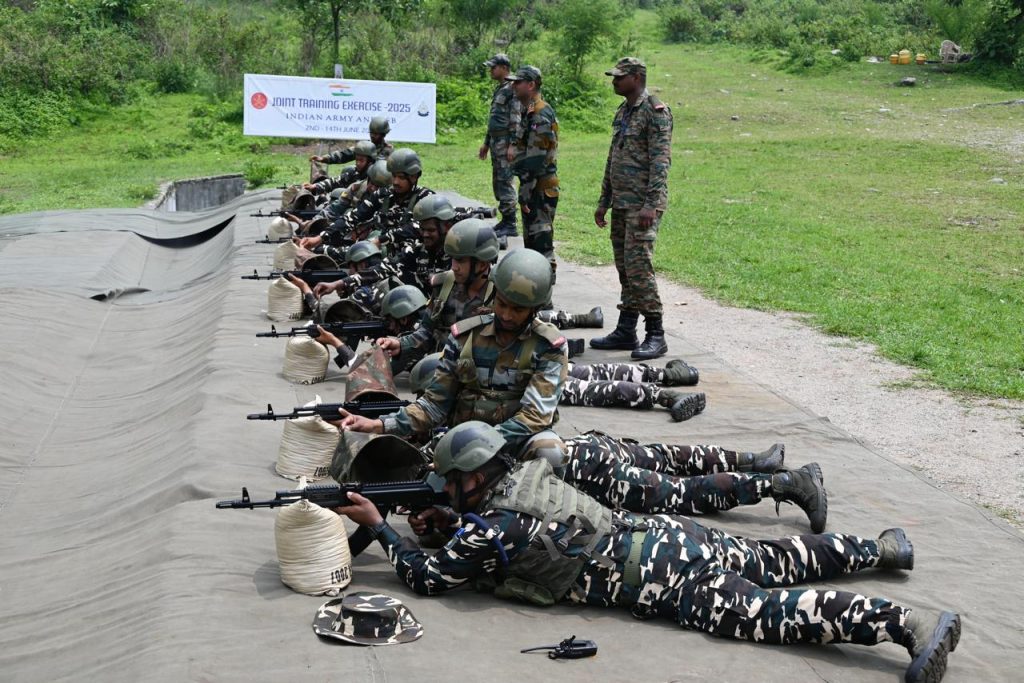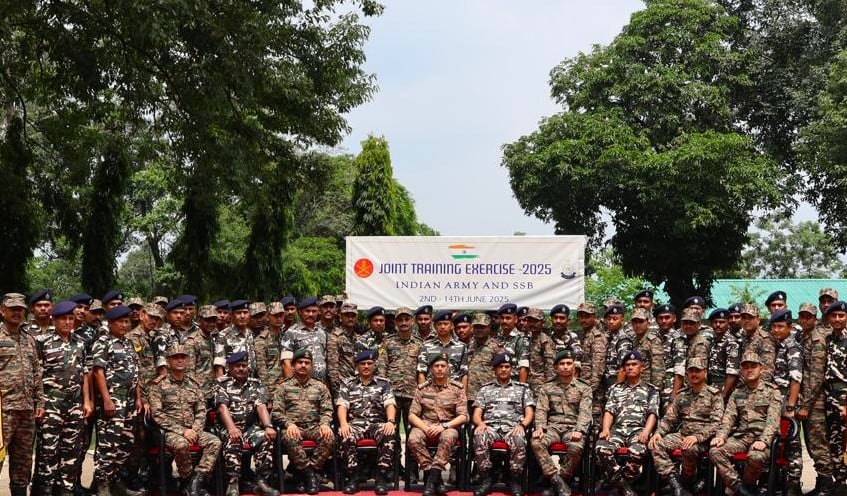Indian Army and SSB Enhance Hybrid Warfare Skills in Joint Exercise at Darjeeling Foothills

The Indian Army and the Sashastra Seema Bal (SSB) have successfully concluded an intensive joint training exercise in the foothills of Darjeeling, aimed at bolstering hybrid warfare capabilities and enhancing border security measures. This exercise, conducted amidst rising regional tensions and informed by historical conflicts, signifies a renewed emphasis on comprehensive defense preparation in the challenging Himalayan landscape.
Originally conceived in the aftermath of the 1962 Sino-Indian War, the collaboration between these two forces has evolved from a basic intelligence-sharing arrangement to a comprehensive, hands-on training program. The recent exercise, conducted in the rugged terrain near the Indo-Bhutan border, included sophisticated tactical drills such as close-quarters battle techniques, precision weapon handling, and responses to hybrid threats.

The training is also part of the SSB's expanded mandate, established in 2004, to secure the 699-kilometre Indo-Bhutan border. This area, known for its geopolitical sensitivity due to difficult terrain and limited infrastructure, presents unique security challenges. Recent changes in tourism and movement patterns in the region have heightened the need for constant vigilance and rapid response capabilities.
Military experts have observed that the program incorporates hybrid warfare principles, initially theorized by strategist Frank Hoffman in 2007. This doctrine involves a combination of conventional, irregular, cyber, and psychological operations to address modern threats. The approach aligns with strategies drawn from historical conflicts like the Vietnam War and is increasingly integrated into Indian military doctrine.

The joint exercise aims to improve interoperability by combining the Indian Army's strategic expertise with the SSB's border specialization, thereby fostering mutual trust and enhancing India's ability to tackle dynamic threats. Defense analysts regard this initiative as a proactive measure to ensure national security in an era characterized by increasingly unpredictable and dispersed warfare.
This exercise is anticipated to lead to more integrated training models between India's military and paramilitary forces, underpinning the country's broader shift towards more agile and responsive security frameworks.



















